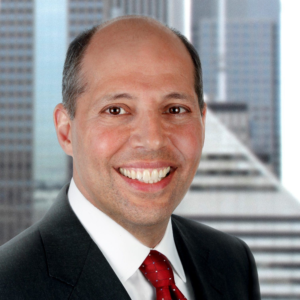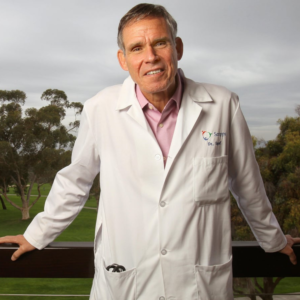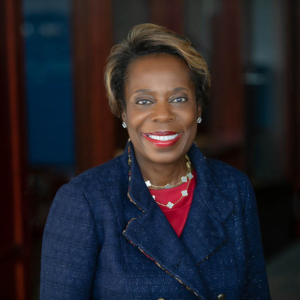December 30, 2021
Watch
Listen
Read

Kaveh Safavi, M.D., J.D., is a senior managing director at Accenture where he is responsible for leading, developing and driving a growth strategy that differentiates Accenture’s offerings for providers, health insurers, and public and private health systems across the globe.
A seasoned executive, Dr. Safavi brings more than three decades of leadership experience to Accenture Health. Prior to joining Accenture in 2011, Dr. Safavi led Cisco’s global healthcare practice. Before that he was chief medical officer of Thomson Reuters’ health business, vice president of medical affairs at United Healthcare, and had leadership roles at HealthSpring and Humana. Among his many accomplishments was establishing one of the Midwest’s first electronic-health-record-enabled primary care practices.
Dr. Safavi has published numerous papers and is often quoted on healthcare issues in various media publications, including The Wall Street Journal, the BBC, The New York Times, Consumer Reports, US News and World Report, Harvard Business Review and The Economist. Recently, IT Services Report named him the #1 healthcare IT executive for 2020.
Dr. Safavi earned an M.D. from Loyola University School of Medicine and a J.D. from DePaul University College of Law. He is board-certified in internal medicine and pediatrics and completed his medical residency at the University of Michigan Medical Center. He serves on the Weinberg College of Arts and Sciences’ Board of Visitors–Northwestern University, is a frequent guest scholar at the Stanford University Clinical Excellence Research Center and serves on the advisory committee of the Buck Institute for Research on Aging.

Eric Topol is the Founder and Director of the Scripps Research Translational Institute, Professor, Molecular Medicine, and Executive Vice-President of Scripps Research. As a researcher, he has published over 1,200 peer-reviewed articles, with more than 250,000 citations, elected to the National Academy of Medicine, and is one of the top 10 most cited researchers in medicine. His principal scientific focus has been on the genomic and digital tools to individualize medicine.
In 2016, Topol was awarded a $207 million grant from the National Institutes of Health (NIH) to lead a significant part of the Precision Medicine (All of Us) Initiative, a prospective research program enrolling 1 million diverse participants in the US. This is in addition to his role as principal investigator for a flagship $35 million NIH grant to promote innovation in medicine. Prior to coming to Scripps in 2007, he led the Cleveland Clinic to become the #1 center for heart care and was the founder of a new medical school there. He has been voted as the #1 most Influential physician leader in the United States in a national poll conducted by Modern Healthcare. Besides editing several textbooks, he has published 3 bestseller books on the future of medicine: The Creative Destruction of Medicine and The Patient Will See You Now and latest Deep Medicine: How Artificial Intelligence Can Make Healthcare Human Again in 2019. Topol was commissioned by the UK in 2018-2019 to lead planning for the National Health Service’s integration of AI and new technologies.

Felicia F. Norwood serves as Executive Vice President and President for Anthem, Inc.’s Government Business Division. She is responsible for the strategic direction and all operations related to the company’s Medicaid, Medicare and Federal Government Solutions businesses. Norwood has extensive experience in both the healthcare industry and government sector. Prior to joining Anthem, Norwood served as the Director of Illinois’ Department of Healthcare and Family Services. Previously, she held a number of senior leadership positions at Aetna including President, Mid-America Region; CEO, President and Chief Operating Officer of Aetna’s population health management subsidiary ActiveHealth Management Inc.; Head of Medicaid; National Head of Small Group and Individual Market Segments; President, Aetna Government Health Plans, LLC; and Regional Manager, Mid-Atlantic Region.
Gary Bisbee, Jr. 0:48
2022 is just around the corner. The new year is a time for reflection on the past year, and an opportunity to set new goals and improve ourselves for the next.
In this episode, rather than comment on personal goals, we will explore goals for healthcare. For this episode, we will hear from three leaders about what the future of healthcare could and should look like.
To begin, we will hear from Dr. Kaveh Safavi, Senior Managing Director at Accenture; Dr. Eric Topol, founder & Director of the Scripps Research Translational Institute and author of Deep Medicine; and Felicia Norwood, Executive Vice President of Anthem and President of the Government Business Division.
To begin, let’s hear about personalizing patient care with Dr. Kaveh Safavi.
Kaveh Safavi, M.D., J.D. 1:36
The concept of personalizing an experience separate from the biology. And that’s one where we are going to be able to borrow lessons learned from outside of healthcare and other industries, other services and product industries, which have already recognized that you need to think about your your customers much more individually, as Gary you described in your book, “n equals one” markets have one. Healthcare is about the most perfect example of a market of one, the biology alone makes you a market of one. But then you superimpose whatever your individual preferences are. And the probability that two people want the exact same care experience is zero. But the ability to personalize it requires two arms the first time is I need to know you in a way that is very context specific. And that has not only understanding your illness and your preferences, but there’s a time series attached to that. But even if I do, the experience is still very monolithic. Unless I can figure out how to give elements of it that you can give you some level of control and give some level of variability, which is one of the reasons why I think not just digital data. But digital platforms and software are so critical to this conversation because it allows us to convert the carrier experience into a blended physical and digital one. And it is that blending that allows us to create hyper personalized experience in addition to the personalization of the biology which will come from the clinic. Data part of it. So both of those are going on at the same time.
Gary Bisbee, Jr. 3:05
Each patient is unique, biologically and in terms of their expectations for the healthcare that they seek. In turn, each individual requires a unique patient-care experience, which presents an opportunity and a challenge to the provider.
Next, we will listen to Dr. Eric Topol and the opportunities possible with artificial intelligence.
Eric Topol, M.D. 3:27
There are a myriad of opportunities with AI. And we haven’t scratched the surface, really. I mean, there’s a lot of back office operations that can be replaced with AI, human scribes, we have something like 60 70,000, human scribes that go into a clinic, visit with the doctor so that the doctor can actually talk to the patient. Well, I mean, really, we don’t need that we should have synthetic notes, and that much better than you write the notes we have. So there are all these different ways that we can implement different types of AI in our daily practice of medicine, to not just save costs, but deliver better care, but also the idea that we get to have more time with patients. That is the gift of time. I look forward to the day when health systems in each city are competing with each other, for giving time for patients and doctors to come together. Not seven, not 12. But much more than that time. That time together is a critical metric that that we don’t have right now.
Gary Bisbee, Jr. 4:36
AI presents many opportunities beginning with the back office. It is also ideal for improving the patient experience, such as strengthening the physician-patient relationship, and we will see continued progress in applying AI to clinical care.
To wrap up, we turn to Felicia Norwood and the most important aspect that needs to be changed in our healthcare system.
Felicia Norwood 5:00
I still think it’s too complex. If I could snap my fingers, I’d make it simpler, You know, our mission, we talk about improving lives and communities, simplifying health care. That’s the part we’re still not there yet. You know, when I think about the complexities that are associated with just understanding healthcare. If you’ve even gone on to medicare.gov during this period of time of open enrollment for Medicare, it is not easy. I have, you know, family where my task at Thanksgiving will be to walk individuals through, all of my mother sisters, whether they do a Medicare Advantage Plan, or Med SAP, but it’s not easy and even medicare.gov is so complicated. So I do think we still aren’t where we need to be around simplifying healthcare, particularly for the people we’re trying to serve. So that’s still, I think, a responsibility of all of us, you know, payers, providers, health plans, you name it. That is still, to me, that holy grail of trying to continue. Simplify this process, make it easier to understand, and reduce the complexities of navigating this healthcare system at a time when people need it most.
Gary Bisbee, Jr. 6:26
As we work to improve our health systems with new technology and models, we must always keep the individual in mind and consider how we can positively impact their health experience through simplifying healthcare.
These leaders proposed that we need to personalize, digitize, and simplify healthcare.
Personalizing the patient-care experience can advance convenience and improve individual health outcomes. Digitization can increase patient-physician face-time, improve collaboration within a care team, and decrease administrative costs. Simplifying healthcare can facilitate communication between patients and providers and allow individuals to access the care more easily.
We are beginning 2022 with COVID still pressuring our healthcare system. The day-to-day challenges make it difficult to focus on our vision for healthcare. However, the guests spoke to the importance of standing back and envisioning an improved health system and each playing our part in pursuing it.
To learn more about leadership, and to grow your own leadership skills, please listen to us as we explore the art of leadership on The Gary Bisbee Show. Episodes drop every Thursday.